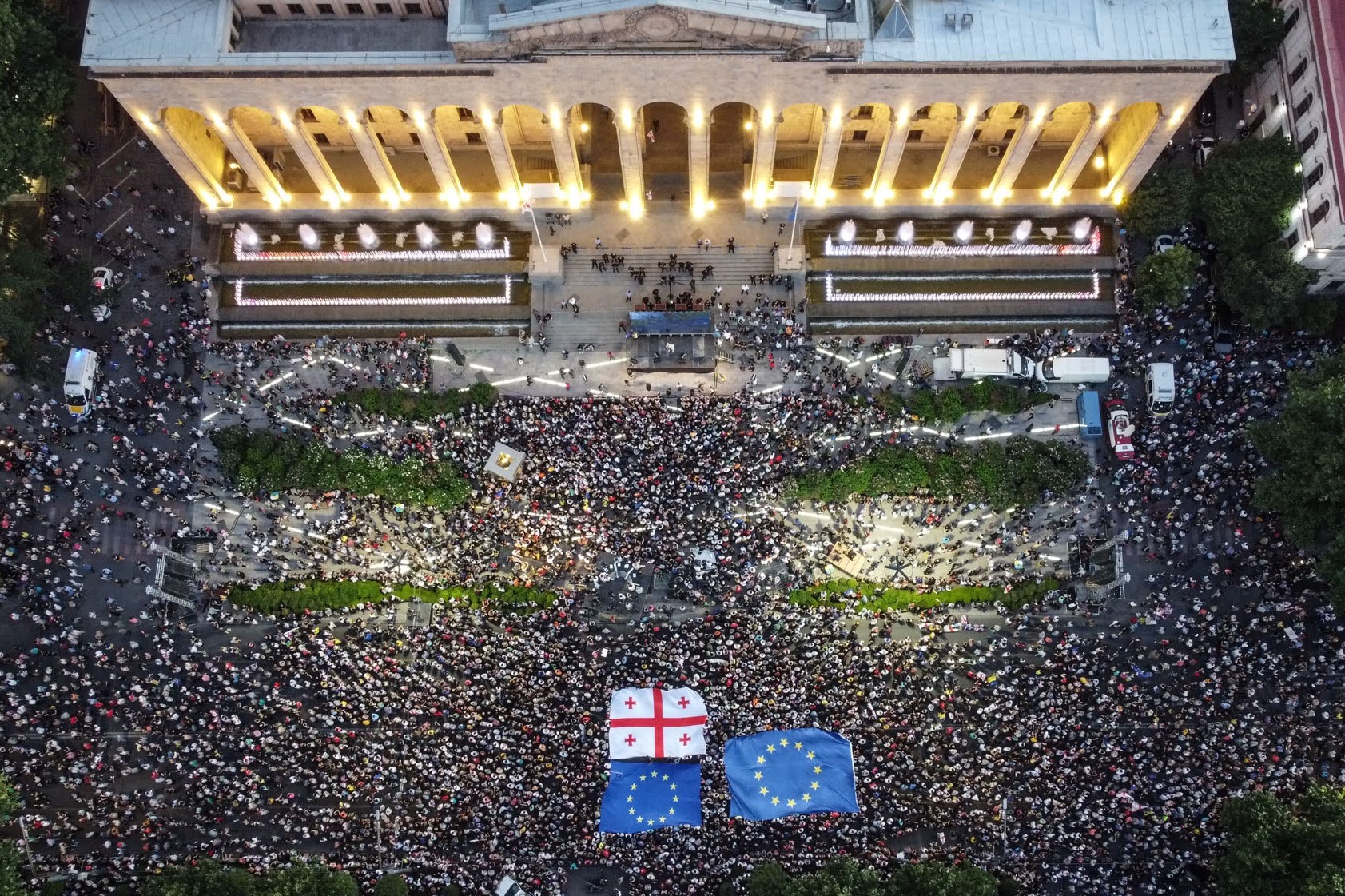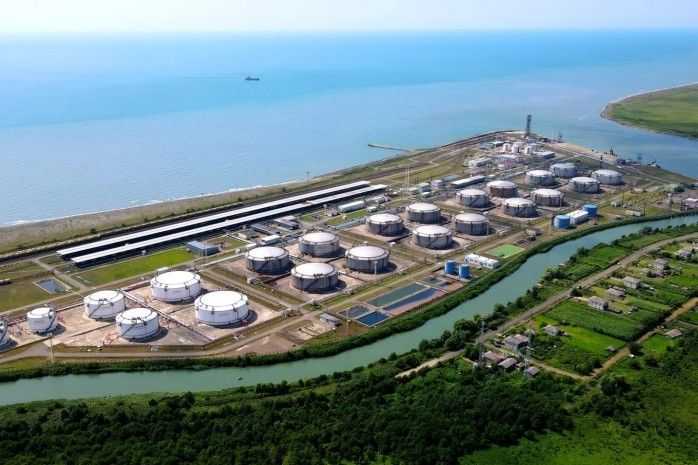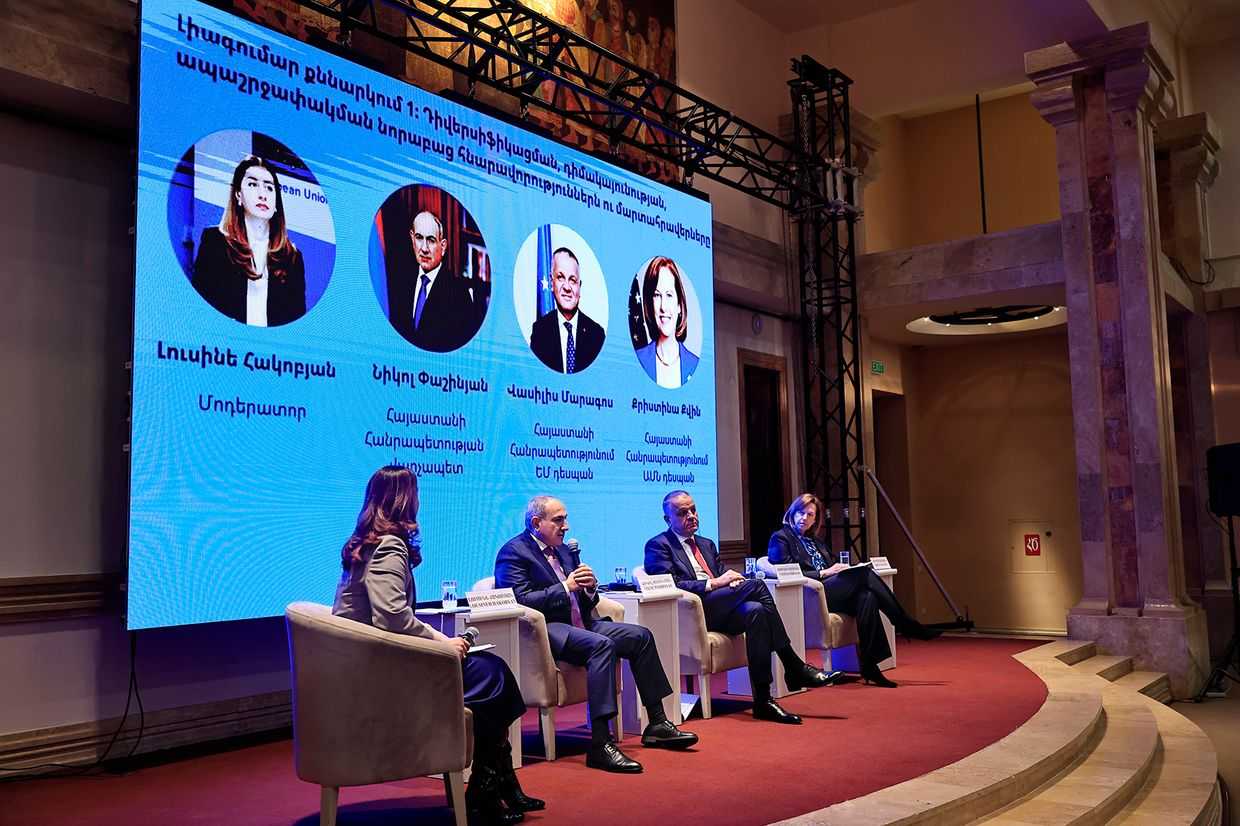
The European Commission has decided to push back re-examining Georgia’s membership application until next year in order to give the country sufficient time to work on implementing reforms.
The decision was announced by Michael Rupp, the European Commission’s representative at the European Parliament, during a session on Georgia’s implementation of the Association Agreement.
Until yesterday, the tentative deadline was understood to be December.
Rupp explained that the extension ‘will give the Georgian political system sufficient time to thoroughly work’ on priorities set by the EU in June.
‘We are of course very interested that Georgia works hard and deep, and thoroughly on these priorities [of reforms]. We, therefore, have, after careful deliberation, decided that we should not rush the Georgian political elite in their attempts to de-polarise the country, to come around the same table to thoroughly work on the reforms’, Rupp noted.
On 24 June, the EU declined to grant Georgia candidate status, giving the country a list of conditions they must meet before their application could be reexamined.
Most of the recommendations are related to institutional reforms, in addition to a call for political depolarisation in the country.
[Read more on OC Media: EU denies Georgia candidate status]
The EU’s decision in June confirmed many Georgians’ fears that their country was falling behind Moldova and Ukraine, both of whom were successful in securing candidate status.
The European Commission’s 17 June recommendations not to grant Georgia’s application and the subsequent decision by the EU triggered a massive anti-government demonstration in Tbilisi on 20 June — one of the largest throughout the rule of the Georgian Dream party since 2012.
[Read more on OC Media: Tens of thousands demonstrate in Tbilisi calling for EU membership]

However, the pro-EU and anti-government demonstrations, led by the Home to Europe platform of non-governmental groups, hit a wall on 3 July, completely stalling with no further plans announced by the organisers.
A lingering disunity
The largest divide in the Georgian political sphere has been between the ruling Georgian Dream and what their leaders have been referring to as the ‘radical opposition’.
This, according to the ruling party’s leaders, always includes the formerly ruling United National Movement (UNM), the largest opposition party in the country. Lelo, Strategy Aghmashenebeli, and several other parliamentary and non-parliamentary parties often fall under this category as well.
On 1 July, two days before the deadline of an ultimatum by Home to Europe for the government to resign, Georgian Dream chair Irakli Kobakhidze unveiled a plan to follow through with the EU’s 12 recommendations.
However, the leaders of Georgian Dream have stated that Georgia’s ‘de-oligarchisation’, one of the recommendations outlined by the EU, would not include their founder, Bidzina Ivanishvili, a former prime minister and billionaire.
At the same time, up to 10 members of the ruling party, including three MPs, have formally left Georgian Dream to be able to ‘speak more candidly’ about what they say is a conspiracy of local and outside forces to involve Georgia in a war with Russia. They have provided no evidence of such a conspiracy and have instead focussed on levelling accusations and criticism against Georgia’s opposition as well as Western countries.
[Tune in to this week’s episode of the Caucasus Digest podcast to hear more]
As of 14 July, no major vote has taken place in the parliament on reforming Georgia’s electoral, judicial, or prosecutorial systems, despite Georgian Dream having the support of several minor opposition parties that have announced their willingness to cooperate in legislation.
On 13 July, Georgian Dream also swiftly rejected a call by the UNM, Lelo, Strategy Aghmashenebeli, and also joined by the For Georgia group, to convene an extraordinary session from 18 July to vote on several reform bills, including on Georgia’s election system, the judiciary, and a bill to set up a stand-alone anti-corruption agency.
The extraordinary summer session would be convened by Georgian President Salome Zurabishvili. She has yet to comment on the proposal.









